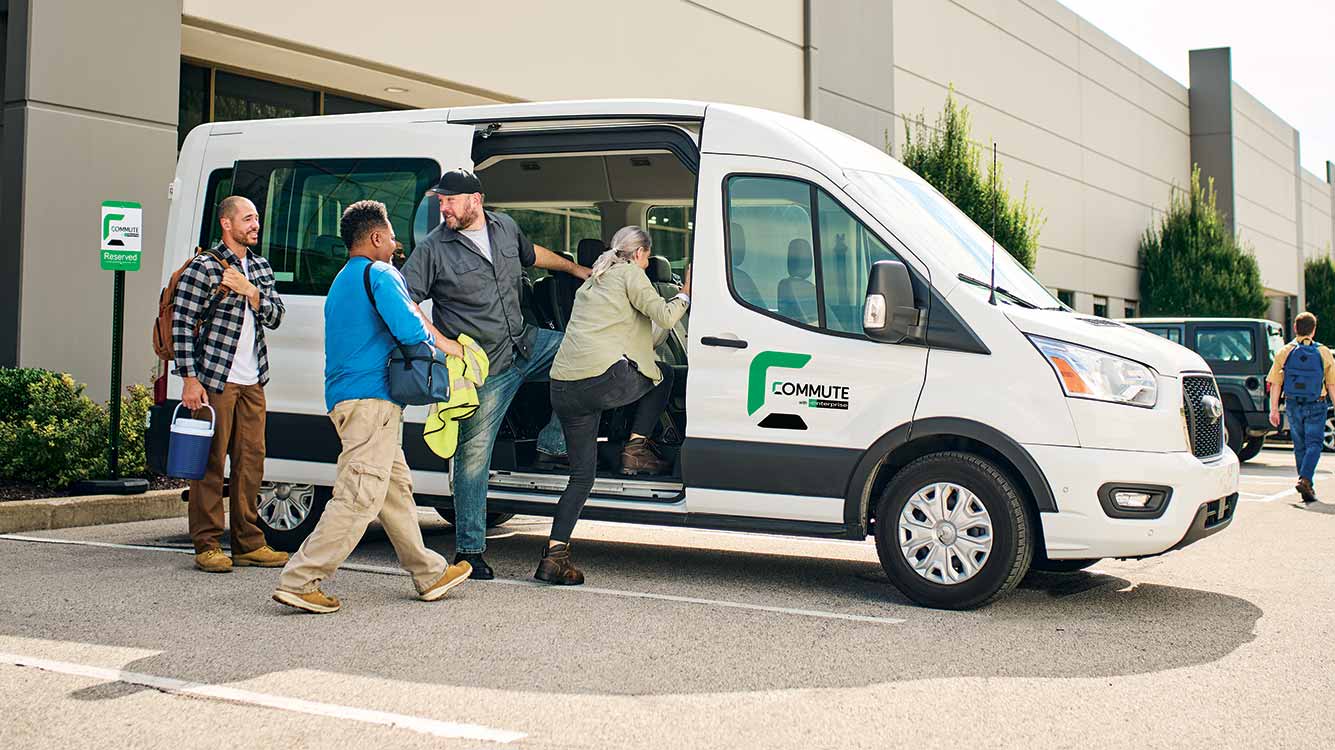In the dynamic world of corporate travel where the needs of business travelers are evolving at warp speed, companies and travel managers must develop solutions that not only meet traveler needs but that also address priorities around reducing emissions and sustainability according to the CWT GBTA Global Business Travel Forecast 2024.
The push for more sustainable solutions is echoed by Booking.com’s 2023 Sustainable Travel Report which collected responses from over 33,000 travelers around the world and found that a vast majority of those who travel are looking to do so in a more sustainable manner. Approximately 76% of respondents want to travel sustainably over the next 12 months.
One ground transportation provider, Enterprise Mobility™, offers a broad portfolio of mobility services to help create better experiences for how the world moves. The organization is evaluating opportunities and implementing strategies to support sustainable mobility through partnerships, investments and operational enhancements around shared mobility.
We ask Rob Connors, Enterprise Mobility’s Vice President of Business Rental Sales and Business Development and Michael Stacy, CWT’s Director Supplier Manager for their input on what is shaping the future of sustainable mobility.
Greener mobility
Demands on businesses to understand employee and customer expectations for environmental responsibility and sustainable travel are an important part of the ground transportation conversation. 1 in 10 consumers surveyed by Deloitte in 2023 now make purchase decisions based on carbon footprint.
“Enterprise Mobility is taking a thoughtful approach to managing its footprint to ensure all business services and products evolve responsibly with the changing industry while continuing to meet customer needs,” says Rob Connors, “We strive to operate with future generations in mind. This approach of managing for the long term guides the way we grow the business.”
Today, Enterprise Mobility is a provider of mobility solutions including car rental, fleet management, flexible vehicle hire, carsharing, vanpooling, truck rental, luxury rental, retail car sales and vehicle subscription, as well as other transportation technology services and solutions, to make travel easier and more convenient for customers.
Moving forward – Together
“An important part of the future of sustainable travel is shared mobility,” says Connors.
One of the ways customers can take a different approach and lean into shared mobility is through Commute with Enterprise. Founded in 1994, Commute with Enterprise has grown into one of the largest and most cost-effective vanpool operations in the U.S. operating approximately 10,000 vanpools across 47 states. These vanpools have reduced the equivalent of an estimated over one billion U.S. commuter miles and reduced an estimated 405,000+ metric tons of CO2e in FY23.
“We partner with businesses to set up these programs for employees who live near each other but relatively far from work,” says Connors. “The employees agree to drive together to and from work in a vanpool. It’s a strategic transportation solution that offers immediate savings, and increased sustainability for the customers who choose this as an option versus driving their personal vehicle. In fact, Commute with Enterprise took an estimated 49,000 cars off the road last year.”
Of course, every region across the world is materially different. European customers typically have more guidelines to contend with and, as a result, sustainability tends to be higher on the list in corporate RFPs than for North American firms. Electric vehicle infrastructure tends to be more advanced in Europe as well.
“The approach must be holistic. That’s why it’s important to have a thread that addresses all the different pieces in every part of the world,” adds CWT’s Michael Stacy.
In the U.K., Enterprise Car Club offers clean, well-maintained vehicles for use by the hour—a cost-effective alternative to car ownership that can play a key role in helping towns and cities meet their future transportation needs. In FY23, these business lines (Enterprise CarShare and Enterprise Car Club) experienced a 15% surge in corporate membership growth globally, helping reduce the use of personal vehicles for business travel. In the U.K., approximately 39% of the Enterprise Car Club fleet is electric or hybrid—offering U.K. customers a mobility option that may reduce their carbon footprint while driving.
Strategies for sustainable decarbonization
One option for sustainable business travel is the use of carbon offsets which work by enabling businesses to fund projects that reduce CO2 or other greenhouse gas emissions—such as supporting renewable energy, or forest conservation or restoration initiatives—usually in developing countries.
Since 2007, Enterprise Mobility customers have been offered the opportunity to participate in a program that helps offset carbon dioxide generated from renting cars. In FY23, 29,818 metric tons of CO2e were offset through a partnership with Terrapass, an organization funding projects that help reduce greenhouse gases.
“Enterprise Mobility is working with governments and transit authorities to help provide the right mix of shared mobility and mass transit options to meet local transportation needs,” says Connors. “From vanpooling to flexible vehicle hire to Car Share and Car Club, the future is about flexibility.”
The future is flexible
Incorporating flexibility and sharing options isn’t just convenient for employees but healthier for the planet and profitability. Flexibility also helps businesses meet the needs of employees from different generations.
“Let’s say you’re a corporate travel manager at a pharmaceutical company,” says Michael Stacy, CWT’s Director Global Supplier Management. “You’re good at car rental. Meanwhile there is another person in your organization with fleet needs and another with trucking needs. They don’t know that you’re in a relationship with a mobility provider like Enterprise Mobility which can offer a wide variety of solutions to meet the needs of the business.”
“Involving the various internal stakeholders with ground transport needs and reaching out to your CWT account manager to discuss the different facets of your business allows forward-thinking businesses to move out of the traditional car rental-only mentality to a consultative process that has the potential to add exponential value to a business,” said Stacy.
Learn more about how to build a ground transport strategy fit for 2024 in the CWT GBTA Global Business Travel Forecast 2024.




